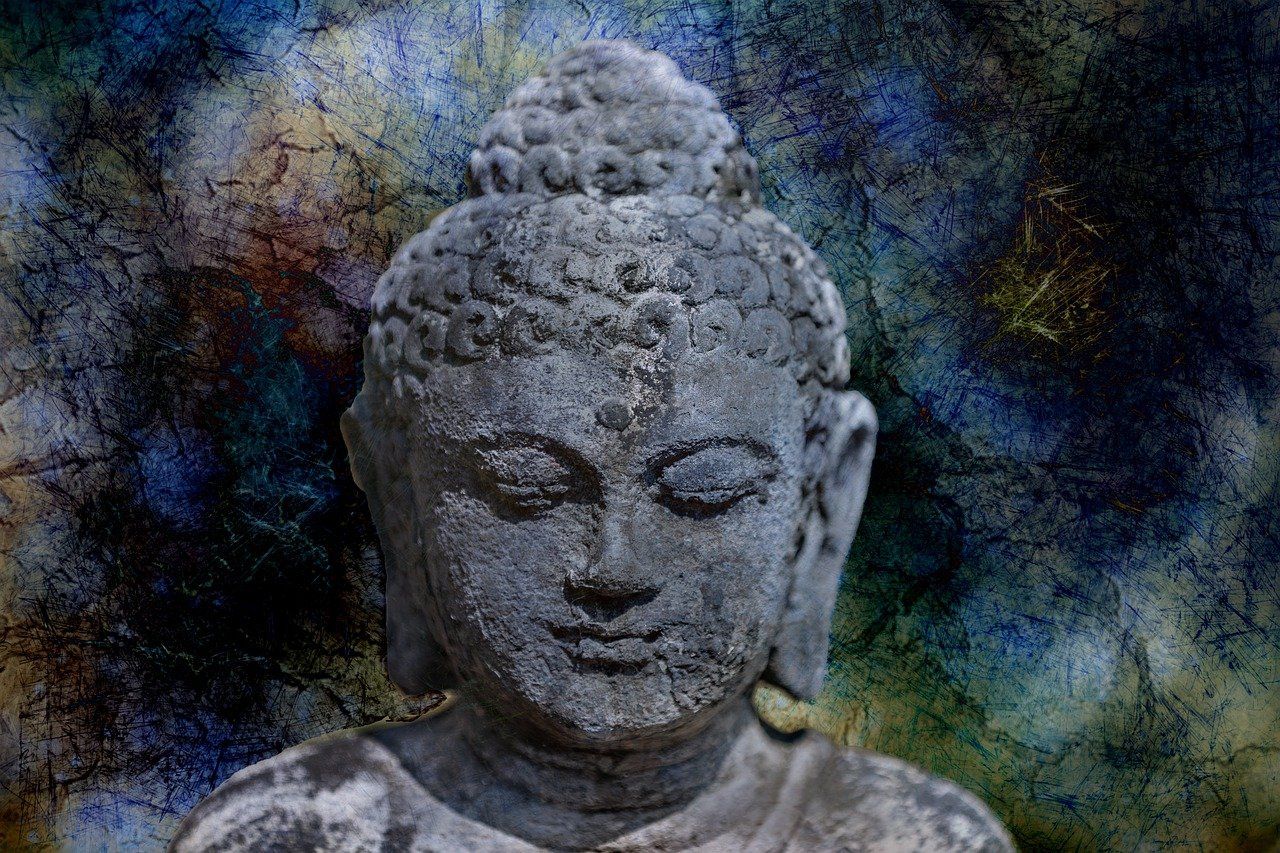The Way of Meditation Blog
Bringing Ancient Wisdom Into The Modern World
4 Questions To Ask A Meditation Teacher (Before You Commit)
Lodro Rinzler • August 29, 2017
A friend recently told me about a woman who went to her first weekend-long meditation retreat and, upon her return, began setting up shop as a Meditation Teacher (capital “M,” capital “T”). I was surprised to hear about this, as an introductory weekend retreat is not a lot of time to learn the ins-and-outs of meditation practice, much less to learn how to teach it to others. Despite my amazement, sadly, I hear about these sorts of things happening about once a month now.
Before continuing with what might seem like a judgmental tone, I should divulge my own teacher training background. When I was 18 years-old, I put up posters all around my college campus, inviting people to come meditate with me. Naïve pup that I was, I assumed everyone who showed up would know how to meditate and my role would be to ring a bell at the beginning and again at the end.
That first meeting proved me wrong. A dozen or so meditation newbies sat there in silence with me, only confessing at the end that they had no clue how to meditate. I called in my own mentors within the Shambhala Buddhist tradition, and they graciously agreed to come and give meditation instruction for months until they encouraged me to do teacher training myself. It made sense, especially given that I had already had a number of years of meditation experience under my belt alongside months of retreat practice.
Before continuing with what might seem like a judgmental tone, I should divulge my own teacher training background. When I was 18 years-old, I put up posters all around my college campus, inviting people to come meditate with me. Naïve pup that I was, I assumed everyone who showed up would know how to meditate and my role would be to ring a bell at the beginning and again at the end.
That first meeting proved me wrong. A dozen or so meditation newbies sat there in silence with me, only confessing at the end that they had no clue how to meditate. I called in my own mentors within the Shambhala Buddhist tradition, and they graciously agreed to come and give meditation instruction for months until they encouraged me to do teacher training myself. It made sense, especially given that I had already had a number of years of meditation experience under my belt alongside months of retreat practice.
Meditation instructor training was an idea that seemed overwhelming and way beyond my experience level. I did it, passed the training, and was invited to offer introductory instruction to newcomers myself. I proceeded to do this, somewhat poorly, for years until I discovered my voice and received further teacher training. Some 16 years later, I still consider myself very much a teacher learning on the job.
So if I seem a bit skeptical of someone taking one weekend retreat and calling themselves a “Meditation Teacher,” you now have a glimpse as to why. My issue isn’t with this one individual, but how the rise in popularity of meditation has led to a stream of self-professed teachers who haven’t been trained to hold space for individuals as they navigate the tricky waters of their own minds. Which has led me to ask a big question: How do you know if a teacher is authentic or well-trained?
In the hopes that you will have the opportunity to study with a meditation instructor in-person, here are a series of questions you can ask your potential teacher to determine if they’re what you’re looking for, so that you’re not led astray.
When trying to find a meditation teacher, use these four essentials questions to vet potential candidates and confirm that you can truly benefit from their guidance and wisdom
1. What Is Your Lineage?
Every teacher I know and respect comes from a lineage. They were trained by someone who trained with someone who trained with someone and so on, going back hundreds if not thousands of years. Lineage can look like many things, of course. There are family lineages as well as direct lineages between teachers and disciples, and more institutionalized lineages, where people go through training at a local center up to the point that they are invited to begin teaching.
To ask about someone’s lineage is, in no way, insulting. In fact, a good meditation teacher is really just a receptacle and spokesperson for ancient wisdom and, thus, they should easily be able to point to where that knowledge comes from. If they don’t have a lineage, a worthwhile follow-up question—and, I’ll admit, this may be a tad snarky—could be, “Did you create this form of meditation?” If so, it’s important to understand that even if the practice works for them, it might not work for you. I recommend finding a teacher with a lineage who will offer you a time-tested technique.
2. Where Were You Trained?
Sometimes, when someone applies to teach at MNDFL, the network of meditation studios that I co-founded, they lead with a list of teachers they have studied with. “I love those teachers,” I might reply, “but where did you receive teacher training?” Training in meditation under a teacher is very different than being trained to teach that form of meditation by that person. A potential analogy may be going to a therapist for a year and then, having received the benefits of that work, calling yourself a therapist, sans training. Not a wise idea.
These days, there are many ways to receive training. There are teacher training programs within various meditation lineages, more secular or pan-traditional trainings for mindfulness practices, and even vocation or location specific trainings, like teacher training for yoga teachers or how to offer meditation within a corporate environment. There are also occasions when someone is directly encouraged by their teachers to teach, based on their wisdom and understanding, and that is wonderful. But if the person you ask this question to can’t articulate who encouraged them to teach, be it an institution or an individual, that might be a red flag.
So if I seem a bit skeptical of someone taking one weekend retreat and calling themselves a “Meditation Teacher,” you now have a glimpse as to why. My issue isn’t with this one individual, but how the rise in popularity of meditation has led to a stream of self-professed teachers who haven’t been trained to hold space for individuals as they navigate the tricky waters of their own minds. Which has led me to ask a big question: How do you know if a teacher is authentic or well-trained?
In the hopes that you will have the opportunity to study with a meditation instructor in-person, here are a series of questions you can ask your potential teacher to determine if they’re what you’re looking for, so that you’re not led astray.
When trying to find a meditation teacher, use these four essentials questions to vet potential candidates and confirm that you can truly benefit from their guidance and wisdom
1. What Is Your Lineage?
Every teacher I know and respect comes from a lineage. They were trained by someone who trained with someone who trained with someone and so on, going back hundreds if not thousands of years. Lineage can look like many things, of course. There are family lineages as well as direct lineages between teachers and disciples, and more institutionalized lineages, where people go through training at a local center up to the point that they are invited to begin teaching.
To ask about someone’s lineage is, in no way, insulting. In fact, a good meditation teacher is really just a receptacle and spokesperson for ancient wisdom and, thus, they should easily be able to point to where that knowledge comes from. If they don’t have a lineage, a worthwhile follow-up question—and, I’ll admit, this may be a tad snarky—could be, “Did you create this form of meditation?” If so, it’s important to understand that even if the practice works for them, it might not work for you. I recommend finding a teacher with a lineage who will offer you a time-tested technique.
2. Where Were You Trained?
Sometimes, when someone applies to teach at MNDFL, the network of meditation studios that I co-founded, they lead with a list of teachers they have studied with. “I love those teachers,” I might reply, “but where did you receive teacher training?” Training in meditation under a teacher is very different than being trained to teach that form of meditation by that person. A potential analogy may be going to a therapist for a year and then, having received the benefits of that work, calling yourself a therapist, sans training. Not a wise idea.
These days, there are many ways to receive training. There are teacher training programs within various meditation lineages, more secular or pan-traditional trainings for mindfulness practices, and even vocation or location specific trainings, like teacher training for yoga teachers or how to offer meditation within a corporate environment. There are also occasions when someone is directly encouraged by their teachers to teach, based on their wisdom and understanding, and that is wonderful. But if the person you ask this question to can’t articulate who encouraged them to teach, be it an institution or an individual, that might be a red flag.
3. Who Did Your Study With?
Having taught meditation for 16 years does not make me immune to always deepening my practice and study. I do so under the guidance of Sakyong Mipham Rinpoche and receive teachings from other Shambhala and Zen teachers. I have a regular meditation practice, and I voraciously devour Buddhist books. I go on a long retreat on average once a year. Every few years, I attend further teacher trainings, just to keep sharp and receive refinements on what I do.
If you turn to a teacher and ask them who they actively study with and they are vague about it, this may be another indicator to keep looking. Someone who believes they have had a great awakening and, thus, are above receiving teachings from living humans is likely deceiving themselves.
4. What Motivated You To Take On Students?
I can’t help but suspect that with the sudden boom in popularity in meditation that some people see an emerging financial market and want to position themselves as a “thought leader” within it. Incidentally, I have been called a “thought leader” before, which I think is hilarious. I might merit this title if we counted the number of thoughts-per-meditation session on a leader board. (Side note: Meditation is about befriending, not turning off, your mind.)
If someone’s motivation to be meditation teacher is to get rich or famous that is not good, but thankfully, easy to spot a mile away. They ignore the concerns of individuals seeking for help, and only take gigs that are lucrative or will make them look cooler. Many of my favorite teachers balance the grandiose events, where they are invited to teach, with smaller teaching engagements that pay little to no money, and make a living that way.
The best motivation for teaching, in my opinion, is because the teacher understands the transformational aspect of meditation and wants to make it as widely accessible as possible to those in need of it. Asking this question of a teacher will likely reveal more to you than the other questions combined.
Ultimately, a good meditation teacher will simply embody the teachings. They will be present, kind, and open-hearted with you. They will have done the “work,” so-to-speak, so you are less tempted to ask about the benefits of meditation because you see it in their very being and are inspired. If you can find a teacher like that, and they are able to answer these questions, cherish this spiritual friend, as they are quite rare.
Having taught meditation for 16 years does not make me immune to always deepening my practice and study. I do so under the guidance of Sakyong Mipham Rinpoche and receive teachings from other Shambhala and Zen teachers. I have a regular meditation practice, and I voraciously devour Buddhist books. I go on a long retreat on average once a year. Every few years, I attend further teacher trainings, just to keep sharp and receive refinements on what I do.
If you turn to a teacher and ask them who they actively study with and they are vague about it, this may be another indicator to keep looking. Someone who believes they have had a great awakening and, thus, are above receiving teachings from living humans is likely deceiving themselves.
4. What Motivated You To Take On Students?
I can’t help but suspect that with the sudden boom in popularity in meditation that some people see an emerging financial market and want to position themselves as a “thought leader” within it. Incidentally, I have been called a “thought leader” before, which I think is hilarious. I might merit this title if we counted the number of thoughts-per-meditation session on a leader board. (Side note: Meditation is about befriending, not turning off, your mind.)
If someone’s motivation to be meditation teacher is to get rich or famous that is not good, but thankfully, easy to spot a mile away. They ignore the concerns of individuals seeking for help, and only take gigs that are lucrative or will make them look cooler. Many of my favorite teachers balance the grandiose events, where they are invited to teach, with smaller teaching engagements that pay little to no money, and make a living that way.
The best motivation for teaching, in my opinion, is because the teacher understands the transformational aspect of meditation and wants to make it as widely accessible as possible to those in need of it. Asking this question of a teacher will likely reveal more to you than the other questions combined.
Ultimately, a good meditation teacher will simply embody the teachings. They will be present, kind, and open-hearted with you. They will have done the “work,” so-to-speak, so you are less tempted to ask about the benefits of meditation because you see it in their very being and are inspired. If you can find a teacher like that, and they are able to answer these questions, cherish this spiritual friend, as they are quite rare.
Get A FREE
Guided Meditation Series
with Chad Foreman

In today’s fast-paced world, the mind often races, driven by the demands of work, family, and personal ambitions. Meditation is commonly seen as a practice to calm the mind, foster inner peace, and connect with deeper aspects of existence. Yet, one crucial element often overlooked is the state of the body, particularly the nervous system. Relaxing the nervous system isn’t just a preparatory step; it is foundational for unlocking the deeper states of awareness and tranquility that meditation promises. Drawing insights from my journey and teachings, we will explore why this is so vital and how it transforms the meditative experience.











